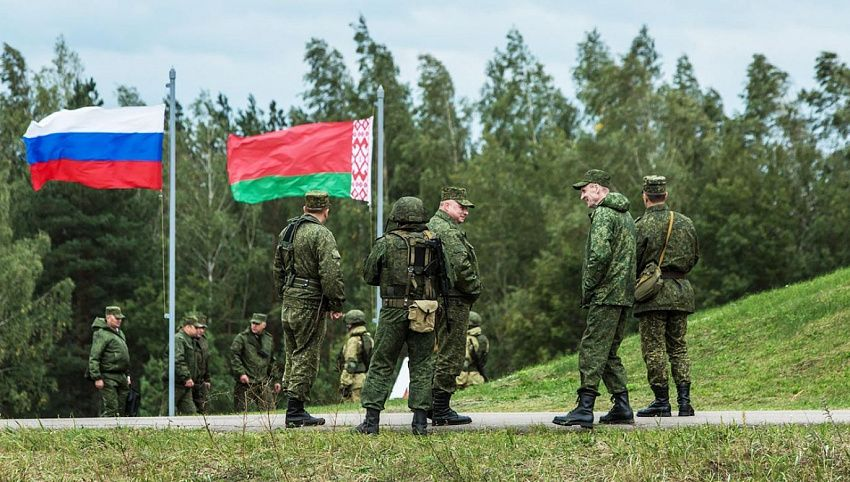The Military Doctrine of the “Union State” and the Migration Crisis
 The situation got worse
The situation got worse

The approval of a joint Belarusian-Russian military doctrine, long blocked by Minsk, should be seen in the context of migration blackmail against the EU.
On November 4th, during a meeting of the Supreme State Council of the so-called “union state”, Alexander Lukashenka and Vladimir Putin approved a joint military doctrine. The previous doctrine, adopted in 2001, has long been outdated. A new doctrine was approved in 2018 by the Russian President and the Government of Belarus, establishing that at that time there were no contradictions between the parties in this regard. However, by the end of that year, an “integration ultimatum” from Russia related to Minsk’s demands for equal energy prices derailed this accord. The following period leading up to the August 2020 Belarusian presidential election can be characterised as a conflict in Belarusian-Russian relations.
The absence of an up-to-date joint military doctrine did not significantly impede military cooperation, as there is an established contractual basis for interdepartmental cooperation use of joint army groups /systems. These agreements were updated regularly as needed. The lack of ratification of the joint military doctrine by the Belarusian side was, therefore, a political gesture reflecting the state of allied relations in the period of late 2018 – August 2020.
However, rapprochement between the Kremlin and the Belarusian regime after August-2020 did not immediately lead to the adoption of the new doctrine. On the one hand, this indicates its low practical significance for bilateral military cooperation. On the other hand, it is an example of Minsk’s traditional tactic of using cooperation with Moscow in the military sphere as a bargaining chip regarding non-military issues.
It is obvious that Minsk’s approval of the joint military doctrine is not motivated primarily by military considerations. The orchestrated migration crisis on the Belarusian-Polish border over the past week clearly escalates the crisis (including, according to Polish authorities, threats and attempted use of weapons, sabotage, and violation of the border by armed men from the Belarusian side- all of which are denied by Minsk). Amidst accusations that Belarus is provoking a regional crisis with Poland, the approval of a joint military doctrine with Russia is a tactic aimed at forcing the EU into dialogue on Minsk’s terms.
A hypothetical threat of expanding the confrontation with Russian involvement to the point of a regional armed conflict is added to the migration blackmail. However, Minsk has learned the lesson of the 2nd Karabakh war: Moscow only comes to the aid of formal allies on the eve of defeat to further its own interests.
The approval of the joint Belarusian-Russian military doctrine will most likely be used by the Belarusian regime as another tool for political and psychological pressure on the West. Its effectiveness, however, is highly questionable.
Subscribe to our newsletter




Situation in Belarus
Constitutional referendum: main consequences


 Video
Video
How to count the political prisoners: are the new criteria needed?


 Video
Video
Paternalism In Decline, Belarusian Euroscepticism, And The Influence Of Russia


 Video
Video












